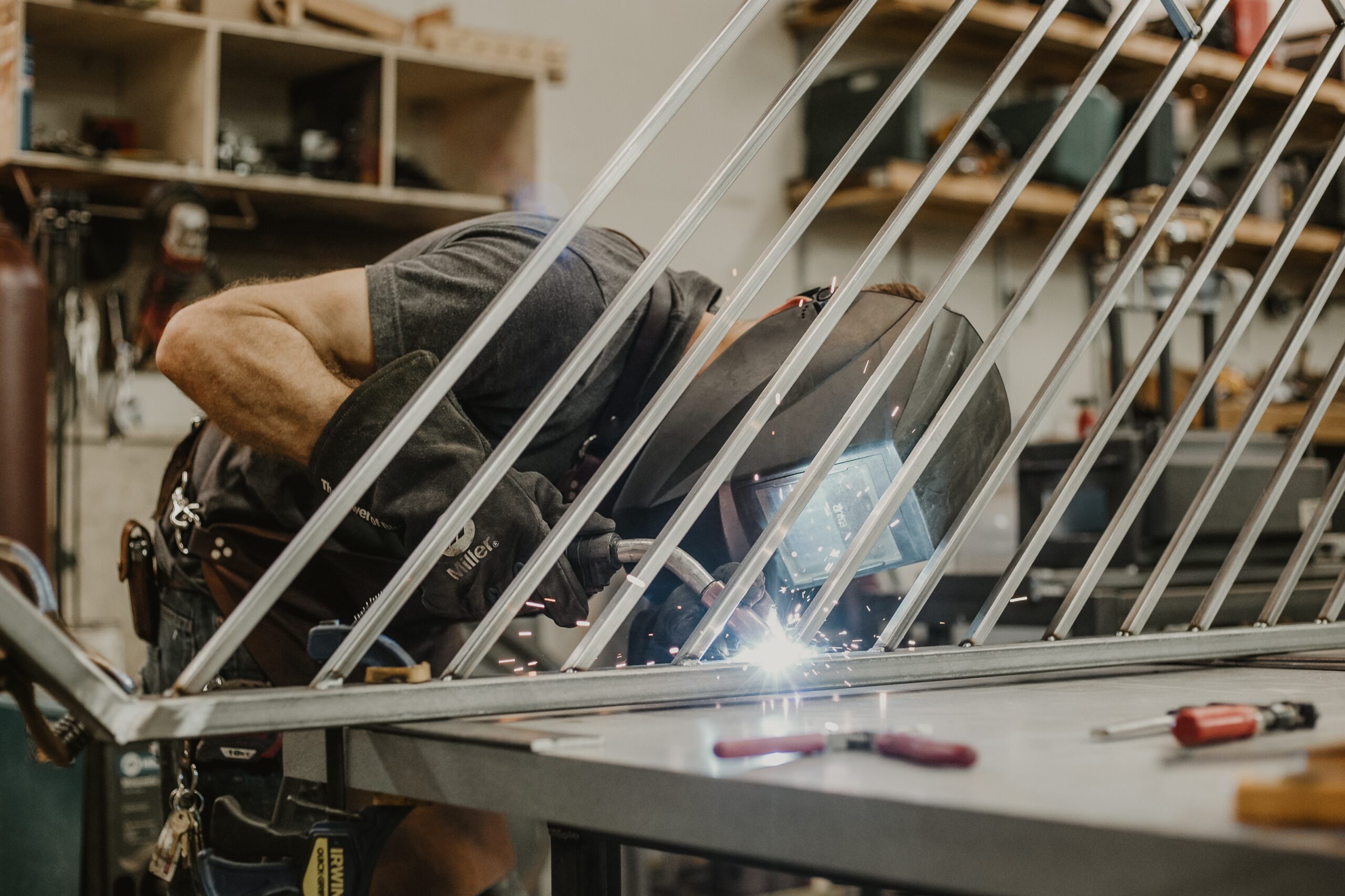
Posted on October-10-2023
Working on a project that requires joining metals together? Well, there are a variety of techniques to choose from. Among the most common techniques are welding and soldering. Each of these methods have unique advantages and applications. In this blog, we will take a closer look at both methods to help you gain a better understanding of their strengths, weaknesses and scenarios where they shine!
Welding is a metal-joining process that involves melting and fusing the base metals, often using an electrode or filler material, to create a strong bond. This process is widely used in industries such as construction, automotive manufacturing, aerospace, and more.
Construction: Welding plays a crucial role in building structures, bridges, and pipelines.
Automotive Industry: Welding is used to assemble car frames and various vehicle components.
Aerospace: The aerospace industry relies on welding for the fabrication of aircraft parts.
Welding offers several key advantages:
1. Exceptional Strength: Welded joints are known for their high strength and durability.
2. Versatility: Welding can be used with a wide range of metals and alloys.
3. Structural Integrity: Welding produces strong, load-bearing connections.
4. Longevity: Welded joints tend to have a longer lifespan.
However, there are also some disadvantages that you may need to consider:
1. High Heat: Welding generates intense heat, which can warp thin materials.
2. Skill-Dependent: Skilled welders are needed for quality results.
3. Cost: The equipment and labour for welding can be costly.
4. Not Suitable for All Materials: Some materials are difficult to weld, like certain plastics.
Soldering is a process that involves melting a lower-melting-point material (solder) to join two workpieces, typically metals. Unlike welding, soldering doesn’t melt the base metals but instead creates a bond through the solder material.
Electronics: Soldering is used extensively in electronics manufacturing.
Plumbing: Copper pipes are often joined through soldering.
Jewellery Making: Soldering is a common technique in crafting jewellery.
Soldering has its own set of advantages:
1. Lower Heat: Soldering operates at lower temperatures, preventing material distortion.
2. Ease of Use: Soldering is generally easier to learn and execute.
3. Fine Electronics Work: It’s perfect for delicate electronic components.
4. Cost-Efficient: Soldering equipment is often more affordable.
However, there are limitations to soldering:
1. Lower Strength: Soldered joints are not as strong as welded ones.
2. Limited Material Compatibility: Soldering works best with metals that are compatible with the solder material.
3. Not Suitable for Heavy Loads: Soldered joints may not withstand heavy mechanical stress.
4. Skill Matters: Although easier, skill is still required for precision work.
The main difference between welding and soldering is how they join materials. As we have discussed, welding involves melting and fusing the base metals themselves and this is what creates a strong, integral bond. Soldering, on the other hand, relies on a lower-melting-point material (solder) to connect the workpieces. This difference in technique results in varying strengths, heat levels, and applications. While welding excels in heavy-duty and structural scenarios, soldering is the go-to method for intricate electronic components and delicate work. Understanding these distinctions allows you to choose the right tool for the job, ensuring your projects are not only successful but also built to last.
The answer to this question will depend on the task at hand – we know that is not particularly helpful! But it is difficult to say which is the better technique as they serve different purposes. Welding provides strength and durability that cannot be matched which is what makes it ideal for heavy-duty applications like construction and automotive manufacturing. On the other hand, soldering’s lower heat and precise control are essential for tasks involving electronics and delicate materials. The key is to match the method to your project’s requirements, ensuring that you achieve the best results.
If you’re in need of welding equipment feel free to reach out to the team here at Arc Welding. With many years of experience in the welding industry, we have become the go-to destination for welding equipment in Birmingham, Coventry and across the West Midlands. Here at Arc Welding, we are committed to providing high quality welding equipment and expert guidance to ensure your welding projects are a success. Contact us today to discuss your welding equipment needs and discover why our customers trust us for all their welding requirements. Call us on 0121 327 2249 or fill out our online contact form and we will be in touch!